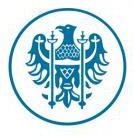
UNIVERSITY OF WROCLAW | POLAND
- plac Uniwersytecki 1, 50-137 Wrocław, Poland
- Visit University Websites
- University Type: Public
- Famous For : High level of education




Wroclaw University is a public research university in Poland. Wroclaw University was established in 1945 to replace Breslau German University. University Wroclaw (UWr) has a rich history of over three centuries. Since the turn of the century, the institution has produced nine Nobel laureates. It is now the biggest institution in the area, with over 26,000 undergraduate and graduate students, including 1,400 Ph.D. students. 8,000 University students graduate each year. We tell students about the Poland education system, Poland visa procedure in India, Poland embassy in Bangladesh, Poland’s student visa acceptance rate, the cheapest student housing in Poland, the finest tourist spots in Poland, part-time employment in Warsaw, and so on.
University Wroclaw provides Bachelor’s, Master’s, and Doctoral degrees. All UWr credentials are recognized worldwide. The UWr is a prominent research institution. Several thousand scientific articles are published each year due to the efforts of highly skilled professionals working on more than 280 research initiatives. The University is part of nine scientific networks and 13 scientific and industrial consortia. A core group of over 400 academics, including foreign university lecturers, is critical to guaranteeing the highest standard of education. Shopnotour for Students arrange student visas to Poland from Bangladesh.
Noble prize recipients include
einsteineruploading up to meet together with.
High educational attainment
Possibilities for employment
University Wrocaw gives up endless opportunities.
Political Science, International and European Law LLB, Biotechnology, European Cultures, Antiquity and Archaeology, Chemistry, English Philology, Economics and Sustainable Business, Classics and European Identity, Managerial Economics, Chemistry, International Relations-Global Studies, European Studies, Journalism and Social Communication, Tourism, Administration in International Organizations, Sociology-Intercultural Mediation, Cultural Communication, English Philology, Sociology-Intercultural Mediation, Cultural Communication, English Philology, Sociology-Intercultural Mediation, Cultural Communication,
Undergraduate: 2,000 Euro to 3,200 Euro
Postgraduate: 2,000 to 3,200 Euro
Valid travel documentation (Passport)
Curriculum Vitae (CV) (Detail Address, Phone Number, Email & Skype ID)
Two reliable references with email and phone numbers
SSC and HSC results with 80% mark Degree results with 80% marks English Proficiency Certificate (IELTS 7.0 or above or TOEFL 565 or above)
Work Experience Statement of Purpose/Motivational Letter (If require)
The cost of admission is 20,000/=.
Contact Us
Shopno Tour
01958553912-4
Studying abroad offers several benefits, including exposure to new cultures and ways of thinking, the opportunity to learn a new language, the chance to gain international experience and make global connections, and the potential to boost your career prospects.
The admission requirements for studying abroad vary depending on the country and the institution you are applying to. Generally, you will need to provide academic transcripts, proof of English language proficiency (such as TOEFL or IELTS scores), letters of recommendation, and a personal statement or essay.
When choosing a study abroad program, consider factors such as the location, academic reputation of the institution, program offerings, cost, and support services available to international students.
The process for applying for a student visa varies depending on the country you are applying to. Generally, you will need to provide proof of admission to a recognized educational institution, evidence of financial support, and a valid passport. You may also need to attend an interview at the consulate or embassy.
Studying abroad can be expensive, but there are several options for financing your education, including scholarships, grants, student loans, and part-time work. It is important to research and apply for funding opportunities early in the application process.
To prepare for studying abroad, make sure you have all the necessary documentation, including a valid passport and student visa. Research the culture and customs of the country you will be visiting, and consider learning some of the local language. Connect with other students who will be studying abroad to build a support network, and make sure you have sufficient funds to cover your living expenses.
The process for finding housing while studying abroad varies depending on the country and the institution you are attending. Many institutions offer on-campus housing options, while others may provide assistance in finding off-campus accommodations. It is important to research your options and make arrangements well in advance of your departure.
Many institutions provide support services to international students, such as language classes, cultural activities, academic advising, and counseling services. It is important to take advantage of these resources to help you adjust to your new environment and succeed academically.
